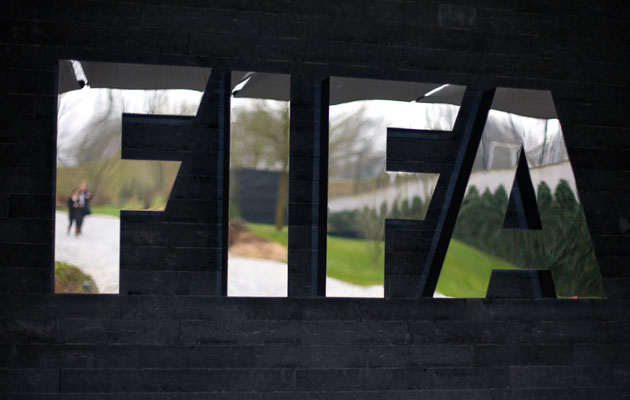Three senior members of the FIFA executive committee are being investigated further over the 2018-2022 World Cup bidding scandal.
Reports in Germany, apparently confirmed close to the exco, have indicated that current members Angel Maria Villar, Michel D’Hooghe and Worawi Makudi have not heard the last of the inquiry run by ethics chairman Michael Garcia.
Villar’s inclusion on the inquiry shortlist is intriguing because the Portugal/Spain for the finals in 2018 was not mentioned by ethics judge Hans-Joachim Eckert in his controversial, interim 42-page summary of the investigation.
This prompted speculation, now apparently confirmed, that there was further interest in the role played by the man who has been president of the Spanish federation for the last 25 years.
Villar is also a long-serving vice-president of both FIFA and European federation UEFA and was known to be resistant to the Garcia investigation and to have refused an initial request to be interviewed by the American attorney.
Such a refusal would have been a violation of the FIFA Code of Ethics, similar to the one which saw former exco member Franz Beckenbauer suspended briefly from all football activities earlier this year.
At the time of the controversial vote in December 2010 it was generally understood that Portugal/Spain had agreed an informal vote-swap deal with Qatar. That did not help Villar & Co but may have assisted the Gulf state in its sensational success at the exco ballot box.
D’Hooghe has also been a member of the FIFA exco since 1988 and it chairman of the medical committee.
He conceded in 2011 that he accepted a “small painting” from an advisor to Russia’s 2018 bid, later describing it as a “poisonous gift” and pointing out that it was worth nothing.
His son also obtained a job as a doctor in Qatar but D’Hooghe said on Thursday that it had nothing to do with the bidding race and was a “purely a medical decision without any involvement of myself.”
The 68-year-old has said he had informed the ethics committee that he needed “clarify a few things already known cases.”
Makudi, from Thailand, is another FIFA veteran and a veteran, also, of many power skirmishes down the years. He was alleged by Lord David Triesman, one-time chairman of England’s 2018 bid, to have sought rights over a TV deal for a friendly match between the two countries.
Makudi has denied this and sought, unsuccessfully, to sure Triesman for libel.
German icon Beckenbauer, who had been an exco member at the time of the vote and was close to the Australian bid for 2022, may also face further action over his initial refusal to answer questions from Garcia.
Also under ethics investigation is Chilean Harold Mayne-Nicholls who led the technical assessments of the bids. He had inquired about unpaid secondments at the Aspire academy in Doha.
However the former Chile federation president could hardly be accused of having favoured Qatar – he reported back in no uncertain terms about the problem of playing any sort of football in the searing summer temperatures in the Gulf.
FIFA has come under steadily increasing pressure to publish Garcia’s initial 430-page report despite his guarantees of confidentiality to interviewees. Domenico Scala, the respected Swiss businessman who heads the FIFA audit and compliance committee, has been asked to review the report and see what may be put before the exco at its next meeting.
The United States FBI and British Serious Fraud Office have also been taking increasing interest in the issues surrounding the bid vote scandal. FIFA has already committed itself to releasing certain evidence to the Swiss criminal authorities which can prompt international judicial action.







